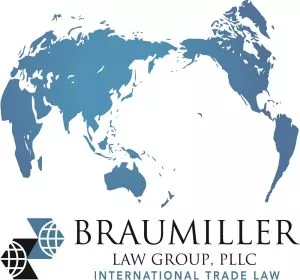An opinion first, humor me. A little over a year ago on June 1, 2022, the United States and Taiwan launched the United States-Taiwan Initiative on 21st-Century Trade to deepen their economic ties and trade relationship, and advance mutual trade priorities based on shared values, promoting innovation, and economic growth for workers and businesses. About 2 months ago the agreement was made official. So, why did I wait to write about it now? Well, I was actually waiting to see any sign of significant development worth reporting, in particular, a stern response from China. I heard crickets. Nonetheless, the investment from both parties will be made public at every step, as in my humble opinion, this agreement is as much about (if not more) sending China a strong message of our commitment to "bonding firmly with Taiwan" as it is strengthening our trade relationship. Beijing has absolutely blasted the arrangement from the start, citing that any diplomatic action that appears to treat Taiwan as a sovereign nation is crossing the ever present thin red line. At this point in the relationship with China, there are only a few lines left to be crossed outside of direct military conflict, which could happen any day now in the S. China sea. The day after signatures appeared on the mutually agreed upon path to mutual economic success, no missiles were fired over Taiwan, as in the visit from Senator Pelosi, or directly after Taiwan President Tsai Ing-wen's recent engagement with House Speaker Kevin McCarthy. Any distractions perhaps? Well, Xi Jinping was busy popping out of a sunroof riding in a North Korean choreographed military parade side-by-side with Kim Jong Un, waving to the crowd of mandatorily exceedingly resolute worshipers. Russia had a presence as well via Putin sending disgraced General Sergei Shoigu. What a glorious display of unity. Geopolitics and trade on the global stage in the current climate (hot as hell in most places on the planet) are directly related at every stage of negotiation, or not. I am surprised Ayatollah Ali Khamenei wasn't invited to the parade along with Lukashenko. All this fanfare taking place while African leaders (only 17 of 43) were in Russia shaking hands with the Kremlin, among them, even Prigozhin. It's complicated. The U.S. supplies many African nations with financial support, (I recommend us nixing a few at this juncture) China supplies the badly needed infrastructure via its Belt and Road Initiative, and Russia supplies weapons and protection from the ongoing continental turmoil, via Prigozhin, while he rapes the mines of precious minerals, but I digress.
So, the outline of the U.S. – Taiwan 21st Century trade Initiative?
The negotiated verbiage regarding specific customs administration and trade facilitation will supposedly streamline cross border procedures and reduce red tape, making it easier, more expeditious, and less expensive for American businesses to ship their products to Taiwan consumers. The foundation of the enhancements is meant to boost trade by streamlining customs checks, improving regulatory procedures, and establishing anticorruption measures between the two. To create a little more transparency to the geopolitical world, those who are paying attention, the U.S.-Taiwan trade agreement is meant to not just increase the island's economic stature but provide national security. Afterall, what is the point of propping up all the small to medium size businesses if China becomes "the overseer" of the supply chain, a heavy hand in what's going out, and what's coming in. Obviously, prohibiting semiconductor exports to the U.S. would be the first of many policies put in place.
What's next? Well, now that the agreement of the U.S.-Taiwan Initiative on 21st Century Trade is signed, the U.S. and Taiwan plan to turn their attention to more complicated trade areas including agriculture, digital trade, labor and environmental standards, state-owned enterprises, and non-market policies and practices. (Official statement by the USTR) The trade agreement is not expected to affect goods tariffs, but most advocates, (sans Beijing) feel strongly that it will strengthen economic bonds between the U.S. and Taiwan, open the Chinese-claimed island to more U.S. exports, and increase Taiwan's ability to resist economic pressure from China. I must say at this point in my tapping the keyboard, the bonding also has a lot to do with Taiwan being the chip manufacturer to the world. Given the sanctions on high tech between the U.S. and China, that golden nugget of ownership looms large. I am amazed that at this particular time conversations are once again taking place between Washington and Beijing. Based on the daily movement of military among those countries involved, Russia, China, N. Korea, Belarus and Iran, it sort of labels the high-ranking talk as rather meaningless, but hey, let's hope for the best. (Insert pessimistic eye roll and expression here)
So, in light of hoping for the best, where are we with Taiwan as a trade partner? Well, Taiwan is the United States' 8th largest trading partner through May of 2023 with roughly $75 billion exchanged in two-way trade and was the seventh-largest destination for agricultural exports, with total trade in goods valued at $136 billion in 2022. Roughly 40% of this two-way trade is Taiwan exporting marine machinery to the U.S. and the U.S. exporting commercial vessels back to Taiwan. This still represents only around 15% of overall annual trade between the two, which is dwarfed by the China-Taiwan trade representing about 40%. This lack in U.S. percentage of overall trade volume is boosted via Taiwan being a significant partner regarding regional and global issues, concerning everything from climate change to global health, anticorruption, women's empowerment, sustainable development, and counterterrorism. Now, that all sounds like a cohesive partnership, doesn't it? Almost to the point, and this will improve over the next couple of years, that if China were to invade Taiwan in 2026 as claimed by the media, the U.S. would have far too much at stake economically to not respond in force. That, ladies and gentlemen, is really the foundation of the agreement. Let's show a little respect. Taiwan is one of the most technologically advanced places on the planet, and a partnership in manufacturing of high tech (semiconductors first and foremost) will lend itself to accelerated growth for those closely involved. Quite frankly, now that the U.S. has put the agreement on display for global leaders interested in exploration, this will open doors for many of those countries (who may have been sitting on the fence to see what China would do) to negotiate direct foreign investment and robust trade. Knowing that the U.S. will have to stand behind their commitment, it's an assurance of security regarding one's investment portfolio in Taiwan.
This bond with the island is nothing new to the U.S., as there is also some history worth mentioning that solidifies the commitment even further. The United States and Taiwan signed a Trade and Investment Framework Agreement (TIFA) back in 1994, which provided a platform for (USTR) to negotiate with their Taiwanese counterparts and work through disagreements to bilateral trade and investment. There was a barrier initiated in 2007 regarding Taiwan blocking U.S. agricultural exports. Specifically, Taiwan's ban was on the import of U.S. pork and beef because they often contain ractopamine, an additive that has been proven to be harmful to humans. (Taiwan was right in initiating the block, as to date several U.S. packers have decided to process only pigs that are free of ractopamine.) Tit for tat though, the USTR suspended TIFA talks for years. We got past this roadblock with no assistance from the WTO. A little inside help perhaps, as Taiwan's President Tsai Ing-wen, a trade negotiator by training, recognized the primary hurdle as well as the importance of improving trade ties with the United States. In August of 2020 President Tsai removed the ban, to significant domestic backlash I might add.
Where the U.S. is concerned Taiwan's continued security is critical to regional stability in the Asia-Pacific. The geopolitical unrest in the region, mainly focused on several hundred islands in the S. China sea, and who has what claim, and if a military base had been installed has the Generals on edge on all sides. The ever-popular harassment claims and unprofessional military maneuvers have us moving ever closer to direct engagement. Some feel that WW3 is inevitable. The U.S. intelligence is reporting that Chinese military manufacturing companies have been sending millions of dollars' worth of aid to Russia. Not much of a surprise there when it comes to an unlimited partnership.
In the meantime, China's game plan for Taiwan includes convincing all people on the island that they have no real alternative but to join China. Convincing all other countries who would do business with China in trade, without Beijing's consent is always in play, although the U.S. does not recognize this request. There has however been some success via China in curtailing Taiwan's presence within the international trade community. Although Taiwan is a member of the World Trade Organization (WTO) and the Asia-Pacific Economic Cooperation (APEC) forum, it is not a member of the two largest regional trade groupings, the Comprehensive and Progressive Agreement for Trans-Pacific Partnership (CP-TPP) that includes Canada, Japan, Mexico, and eight other countries and the Regional Comprehensive Economic Partnership (RCEP) that includes China, Japan, South Korea, Australia, New Zealand and the Association of Southeast Asian Nations (ASEAN) countries. Taiwan is of course excluded due to the fear of China's repercussions economically. Taiwan only has two free trade agreements with countries that do not maintain diplomatic relations with the island – Singapore and New Zealand. China continues to pressure other countries not to enter into trade agreements with Taiwan.
So, in review of the diplomacy and those involved with Taiwan and the U.S regarding trade, China's statement is: The U.S. must "refrain from negotiating or signing any agreement of sovereign implication or official nature with China's Taiwan region, and stop sending any wrong message to separatist forces seeking 'Taiwan independence' in the name of economy and trade." And from the U.S. side: The U.S. maintains that its engagements with Taiwan do not contravene its one-China policy, composed of agreements known as the three joint communiques that established America's formal diplomatic recognition of the People's Republic of China while allowing "cultural, commercial and other unofficial relations" between America and Taiwan.
A little long winded on both sides, but we get the point. This has the potential to become a hell bound train. The U.S. just announced a $300 million weapons package for Taiwan. An additional $750 million is on the books.
Check out our new Digital Magazine Get the inside scoop on the Braumiller Law Group & Braumiller Consulting Group "peeps." Expertise in International Trade Compliance.
The content of this article is intended to provide a general guide to the subject matter. Specialist advice should be sought about your specific circumstances.

